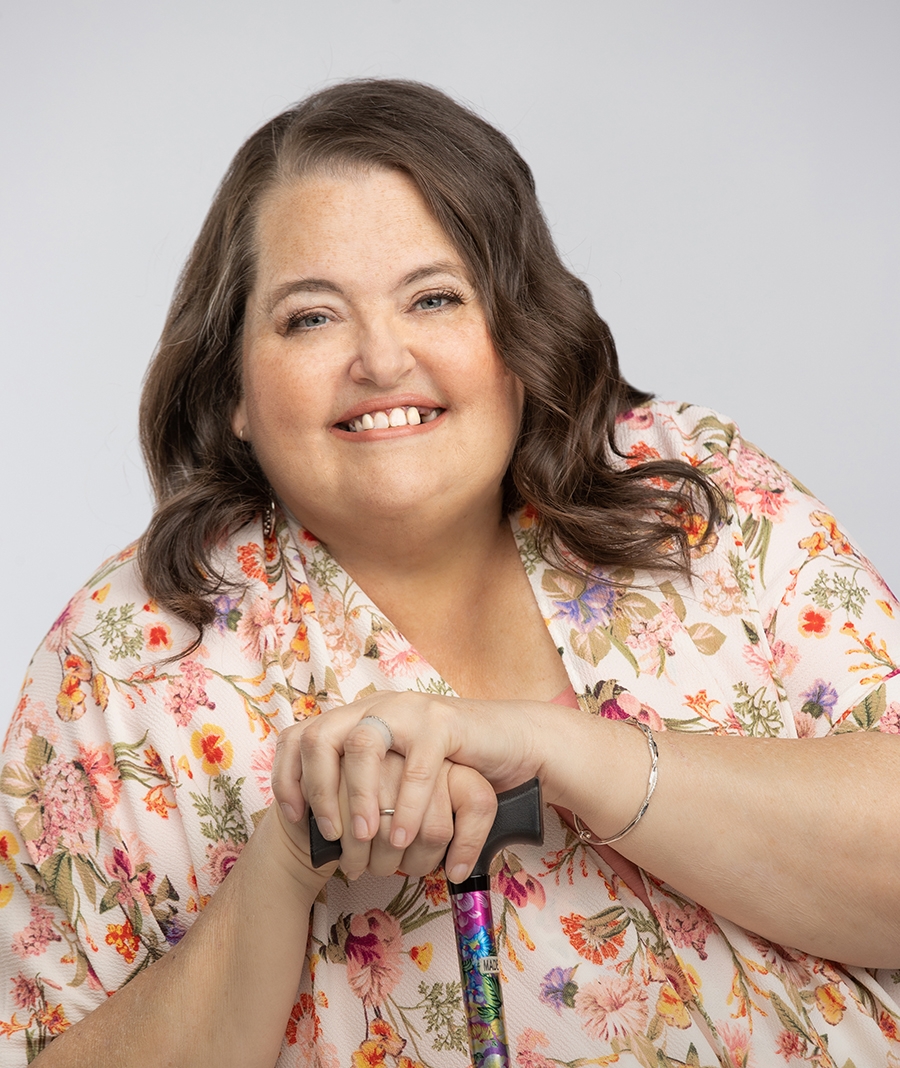When Going Back to Work Doesn’t Work for You
There is a certain joy and lightheartedness in the way Michelle McKay carries herself. The three-time stroke survivor has accomplished a lot this year. She co-authored a book with fellow stroke survivors, entitled Girl, Get Your Life Back. Michelle also realized her goal of running a craft corner at a senior center and taught a successful vision boarding class at a brain injury conference in Arizona.
However big this year has been, she didn’t complete one item on her to-do list, graduating from the state’s vocational rehabilitation program. This would have culminated in her returning to part-time work with an eye toward matching her abilities with a job suited for her accommodations. As it turns out, she’s just fine with that.
“When you go through your post-injury journey and begin to like the new you, your priorities can change, and that’s not always a bad thing.”
When Going Back to Work Doesn’t Work for You
There is a certain joy and lightheartedness in the way Michelle McKay carries herself. The three-time stroke survivor has accomplished a lot this year. She co-authored a book with fellow stroke survivors, entitled Girl, Get Your Life Back. Michelle also realized her goal of running a craft corner at a senior center and taught a successful vision boarding class at a brain injury conference in Arizona.
However big this year has been, she didn’t complete one item on her to-do list, graduating from the state’s vocational rehabilitation program. This would have culminated in her returning to part-time work with an eye toward matching her abilities with a job suited for her accommodations. As it turns out, she’s just fine with that.
“When you go through your post-injury journey and begin to like the new you, your priorities can change, and that’s not always a bad thing.”
Michelle, who has always balanced running her home with parenting duties and working outside the home in a variety of service industry and clerical duties, said the reality took a bit of time to accept.
“After my last stroke which happened during COVID, I entered a physical rehabilitation program where my therapies were covered by the state of Arizona. However, about half-way through the program, I was just miserable.”
Michelle took some time to reflect and decided finishing the program and going back to work, was not in her best interest.
Getting back to work after an accident, illness, or injury that causes a brain injury is often a pillar, or even a necessity, of recovery for many. However, some are choosing to re-evaluate their lives, especially those with high-stress careers that contributed to their health problems. The decisions on how to move forward are complex, and can involve consultations with your family, medical team, and local Brain Injury Alliance or Association.
For Michelle, this meant a series of heart-to-heart talks with her husband, and they decided that for her health, the best thing to do was to be thrifty and allow her to retire early. As a bonus, she would have more time for family and her passion, spreading joy through crafts.
This decision was made easier by the fact that Michelle and family had always lived frugally and within their means. “I don’t have a passport with lots of stamps in it from foreign countries and I am still waiting to see the inside of a cruise ship someday,” laughed Michelle. “It turns out being the anointed ‘Queen of the Cheapskates,’ really being able to stretch a dollar has helped me to create the life I want while living with a disability.”
Once she chose to focus on keeping house while her husband of 23 years worked, Michelle said the rest became clear. She notes that if she were at a different place in her life, chasing young kids or needing to work to sustain the family, her decisions may have been quite different. “When you go through your post-injury journey and begin to like the new you, your priorities can change,” reported Michelle. “And that’s not always a bad thing.”
ABOUT BRAIN INJURY ASSOCIATION OF ARIZONA
The Brain Injury Association of Arizona (BIAAZ) is the only statewide nonprofit organization dedicated to improving the lives of adults and children with all types of brain injuries through prevention, advocacy, awareness and education. BIAAZ also houses the Arizona Brain Health Resource Center, a collection of educational information and neuro-specific resources for brain injury survivors, caregivers, family members and professionals.
What began in 1983 as a grassroots effort has grown into a strong statewide presence, providing valuable life-long resources and community support for individuals with all types of brain trauma at no charge.






